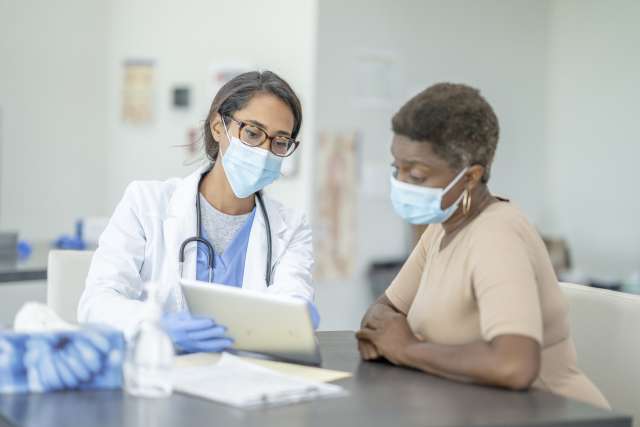Dear Doctors: My mother has been diagnosed with breast cancer, and I’m helping with her medical appointments. Her oncologist says she needs a liquid biopsy. She has already had a biopsy -- that’s how they found the cancer. Why would she need another one?
Dear Reader: A biopsy is a diagnostic medical procedure to collect cells from the body, then examine them under a microscope for abnormalities. This can reveal the presence of a disease or condition. As with the procedure that diagnosed your mother’s breast cancer, biopsy often involves the removal of tissue. A tissue biopsy from a suspected malignant growth or tumor looks for the presence of cancer cells. When cancer is found, a tissue biopsy can also reveal information about genetic mutations. However, biopsies can also entail bodily fluids, such as blood, saliva or cerebrospinal fluid. This is known as a liquid biopsy.
A liquid biopsy identifies cellular biomarkers, such as circulating tumor DNA, RNA, microRNA, platelets and endothelial cells. These provide a more nuanced profile of the cancer than a tissue biopsy. The genetic diversity within the tumor and the presence of additional mutations can help identify how far in the body the cancer has spread, the optimal course of treatment and the likely response of the cancer cells to a certain treatment. A liquid biopsy can also provide early signs when the current treatment is no longer effective. This early warning makes it possible to switch to a different treatment and stay one step ahead of the cancer.
Liquid biopsies are effective only in cancers like breast cancer that, as they grow and spread, release a significant amount of genetic material into the blood. Although effective in ongoing cancer care, liquid biopsies are not useful for initial diagnosis. In the early stages of cancer, the tumor hasn’t shed enough genetic material for detection and analysis.
Recent data suggest liquid biopsies have been particularly helpful in extending the lifespans of women with certain types of metastatic breast cancer. Newer methods of analyzing blood are sensitive enough to detect protein changes that signal a change in cancer behavior. This has furthered the emergence of sequential treatment, an important advance in cancer care.
Getting a liquid biopsy is a simple blood draw for breast cancer patients like your mother. Depending on the type of cancer and her treatment, it’s possible additional liquid biopsies may be needed to monitor how her body responds to treatment.
(Send your questions to [email protected], or write: Ask the Doctors, c/o UCLA Health Sciences Media Relations, 10960 Wilshire Blvd., Suite 1955, Los Angeles, CA, 90024. Owing to the volume of mail, personal replies cannot be provided.)





